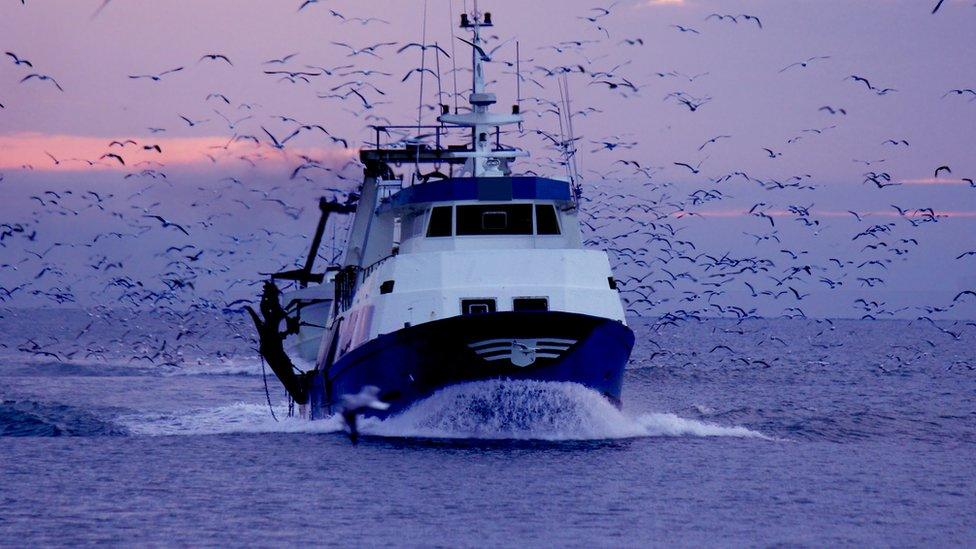EU fish discard ban 'cannot be enforced without harming industry'
- Published
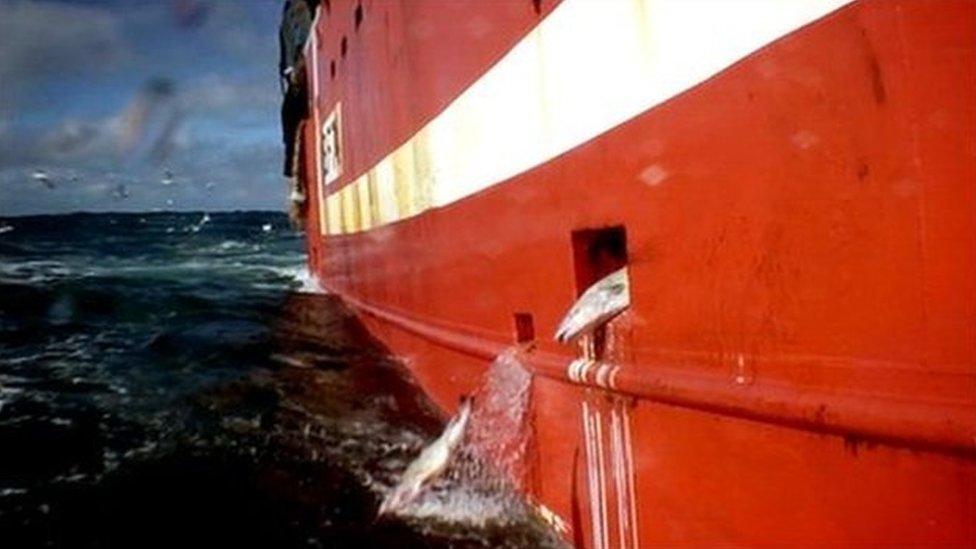
An EU ban on throwing dead fish back into the sea cannot be enforced without causing the industry significant harm, a House of Lords report has said.
The inquiry concluded that the UK and Scottish governments had not introduced sufficient tools to enforce the ban on discards.
It was banned after a campaign by the chef Hugh Fearnley-Whittingstall.
He said it was a "huge derogation of duty to protect our vulnerable oceans and sustainably manage our fisheries".
Lord Krebs, who sits on the Lords' European Union committee, said: "We recognise that the landing obligation requires significant changes in fishing practices and in how compliance is monitored. But these rules were agreed in 2013.
"Action could have been taken years ago to change how fishing quota is managed and distributed, to improve take-up of technology that can help fishers be more selective in what they catch, and to reach agreement with other member states about the use of cameras to monitor compliance.
"Instead, we are entering 2019 with the most likely scenario being that discarding will continue, leaving the environmental concerns that prompted the introduction of the new rules unaddressed."
'Practically non-existent'
River Cottage chef Hugh Fearnley-Whittingstall began his campaign after making the TV show Hugh's Fish Fight in 2011.
A public petition which followed attracted 870,000 signatures.
Responding to the Lords' report, he said: "Now it has become clear, from the report published today by the House of Lords, that the government's preparations for the phased-in discards ban are completely inadequate, and their enforcement practically non-existent.
"Discarding continues largely unchecked in fisheries all around the UK, with potentially dire consequences for the future of our fishing industry.
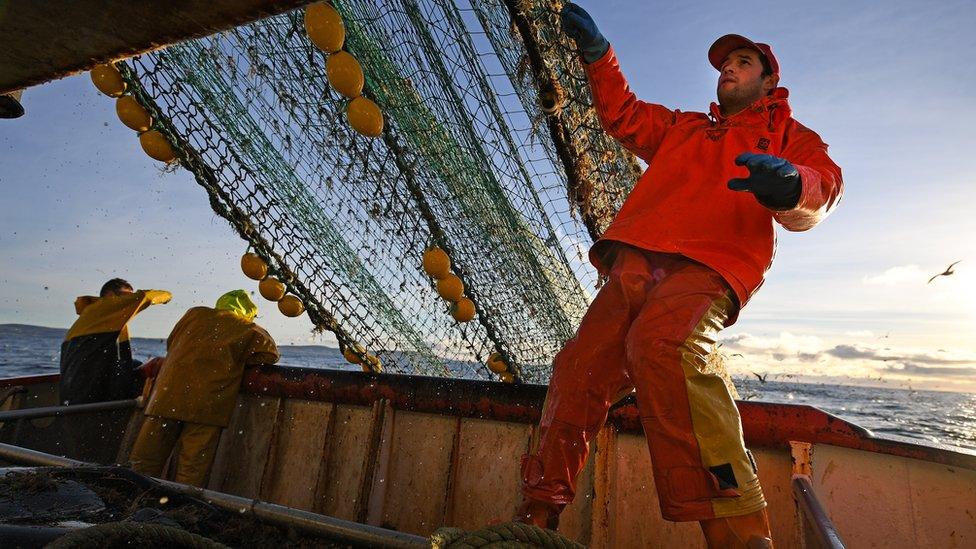
"As long as discarding continues, we simply will not know how many fish are being killed at sea. And we cannot protect our fish stocks without dependable science based on dependable data.
"Discarding 'as usual' could result in the waste of up to half a million tonnes of fish in the North Sea every year. This would not only be a massive step backwards for UK fisheries management, it would be disastrous for fish stocks, our ocean ecosystems, and ultimately for the UK fishing industry."
The report says that in 2013, when the EU legislated to reducing discards, an estimated 1.7 million tonnes of fish and other marine animals were being thrown back into the sea each year.
They were discarded because the fishermen either did not want them or were not allowed to keep them.
Electronic camera monitoring has been trialled on boats as a way of ensuring fish are not discarded overboard.
But the industry has resisted making that a permanent measure because there is no way of forcing vessels from other EU nations to install them.
The Scottish Fishermen's Federation (SFF) has insisted that leaving the EU would allow it to put camera monitoring back on the table.
'Cannot be right'
SFF chief executive Bertie Armstrong said: "The Lords inquiry has looked at a rule which is contained in the Common Fisheries Policy and is very time limited. The report concludes correctly that the rule, without serious damage to the industry, cannot be made to work.
"But there is every possibility of reducing discards once we have proper sovereignty over our own fisheries management."
The report said it "cannot be right" that discarding continues and urges governments and industry to "use the opportunity created by leaving the EU to put in place the on-board monitoring requirements and changes to quota distribution that could make a discard ban enforceable and effective."
A Scottish government spokesman said: "We remain firmly committed to the principles behind the EU landing obligation: to reduce waste, improve accountability, and safeguarding the sustainability of fish stocks.
"There are issues with the current landing obligation that we will seek to address through our Future Catching Policy, which is part of the upcoming national discussion on Future Fisheries Management.
"However, it is incumbent on us to seek to make the current landing obligation work where it can and we are working closely with the fishing industry on this."
- Published31 December 2018
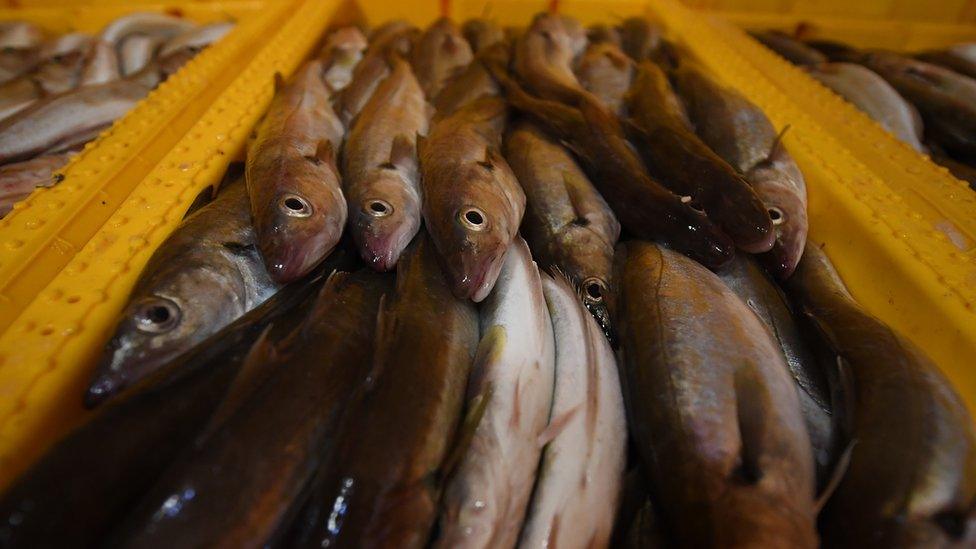
- Published17 December 2018
- Published4 December 2018
- Published22 November 2018
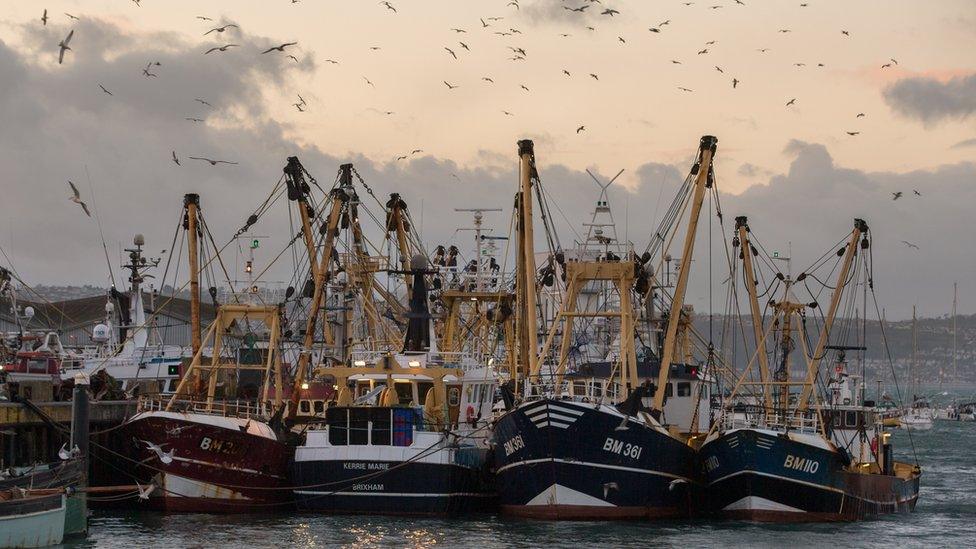
- Published21 November 2018
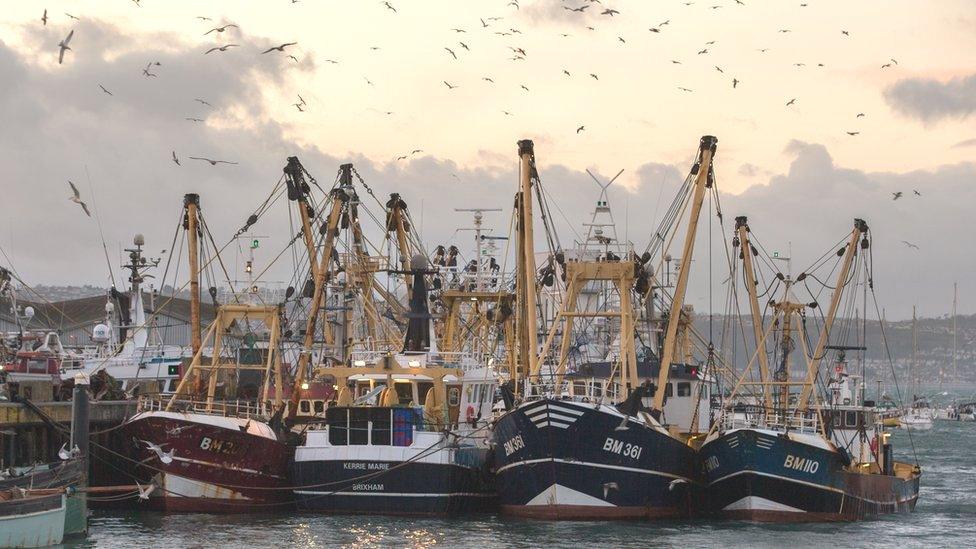
- Published27 January 2017
